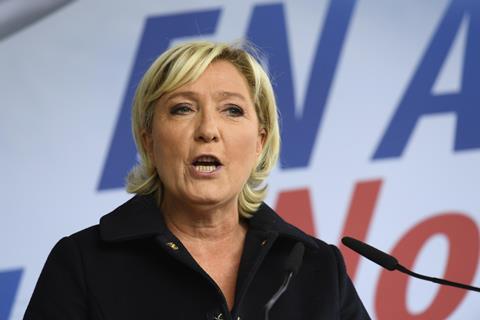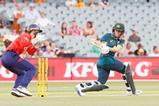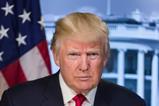As the United Kingdon’s general election happened yesterday, Sharmila Meadows looks at the rise of Marine LePen in France, and asks what it could mean for the country

For most of this century, Angela Merkel stood as the prominent woman in European politics, but a new brand of female politician is occupying the European stage and she represents the hard right.
Giorgia Meloni came to power in Italy in 2022, while now, the spotlight has returned to Marine Le Pen, leader of France’s far right Rassemblement National (RN), the party that took a compelling 31.5% of the French vote in the recent European elections, leaving President Emmanuel Macron’s ruling party on 14%.
So significant was this result that it caused President Macron to dissolve the Assemblée Nationale (the French parliament) and call snap legislative elections, plunging France into unexpected political uncertainty.
I lived and worked in France during the 1990s when Mme Le Pen’s father, Jean-Marie Le Pen, lead a more radical far right party in the Front National (National Front).
I lived and worked in France during the 1990s when Mme Le Pen’s father, Jean-Marie Le Pen, lead a more radical far right party in the Front National (National Front). I also happened to be visiting when he reached the Second Round of the 2002 Presidential Election, only to be crushed by Chirac. This latest development made me curious to glean from French friends the mood at grassroots.
My French circle is simply my circle, but it represents a range of backgrounds: those of strong Christian faith and none; those with white French heritage and those of mixed or immigrant heritage; those from towns and country – all of whom capture in their comments the sentiments of their own wider circles.
Although one friend shared deep concern about the rise of the hard right, others found it unsurprising and understandable. They spoke of fears, often intertwined, about immigration, lawlessness and radical Islam. Concerns people feel unable to express openly, but which find their voice at the ballot box. What comes through is that in the RN, many French voters find a party that speaks to their concerns, where others have failed.
Under Marine Le Pen, the former Front National has become a more moderate and credible political unit.
I have discussed the hard right with French friends many times, but a telling shift was how one friend said that, while a RN victory scares and saddens her, it does not frighten her in the way it once did. She noted that under Marine Le Pen, the former Front National has become a more moderate and credible political unit. One that others on the right of politics may join and one under which, France would remain a democracy.
This last point nodded to the deeper sentiments driving votes: ‘les banlieues’. Literally meaning the ‘suburbs’ but translating to estates or ghettos, the banlieues, with their strong Muslim population, can feel a threat to French democracy, friends explained. Time and again, I heard the term ‘ras de bol’; people are ‘fed up’. They’re fed up of being intimidated by radicalised and violent fringes, who they feel have no respect for their fellow citizens or French values and who hate the French Republic. Furthermore, many see a pro-Gaza, antisemitic political left that no longer represents them.
How should Christians respond? It is too easy for Christians to dismiss the hard right as unloving – and too often church leaders sound closer to left wing politics than the gospel – but that ignores root issues and invalidates people’s experiences. That too is unloving. As one friend shared, political correctness leaves the real issues unsaid, so public discourse is framed around the cost of living, but what genuinely scares people in France is immigration, violence, radical Islam and antisemitism.
Read more on politics
Standing up for faith in politics
Is there space for faith in politics?
’Everyone is God’ is a new political party in the General Election 2024
As Christians, we need to listen and respond. My conversations made me turn to a prominent woman in Scripture and the Book of Esther. There we learn, through Mordecai, that God hears and responds to the cries of the hurting. Hidden in the Book of Esther is how God’s people mobilised to fast and pray: prayer is where we can speak from the heart and where the thoughts we cannot articulate become coherent. Prayer is also powerful and effective (James 5:16) We need to remember that and we need to use it – and then be open to how God acts.
These are turbulent times. Ordinary people are scared for the future of their countries and we should intercede and bring their concerns to God. It’s time the Church abandons comfortable messaging and instead, like Jesus, opens its ears and takes to its knees.




































No comments yet